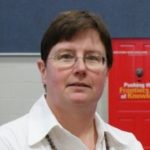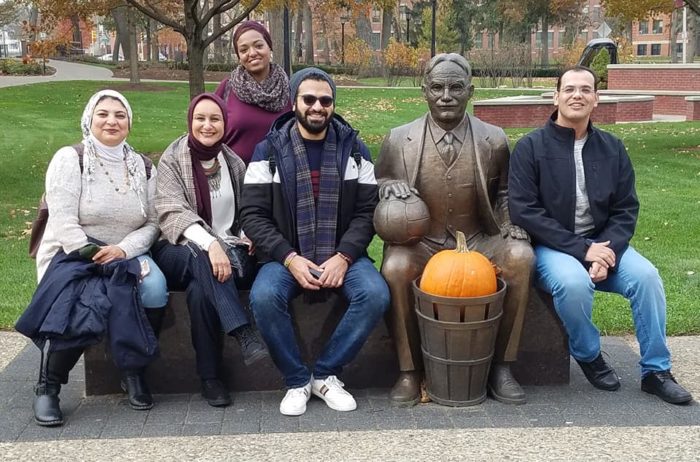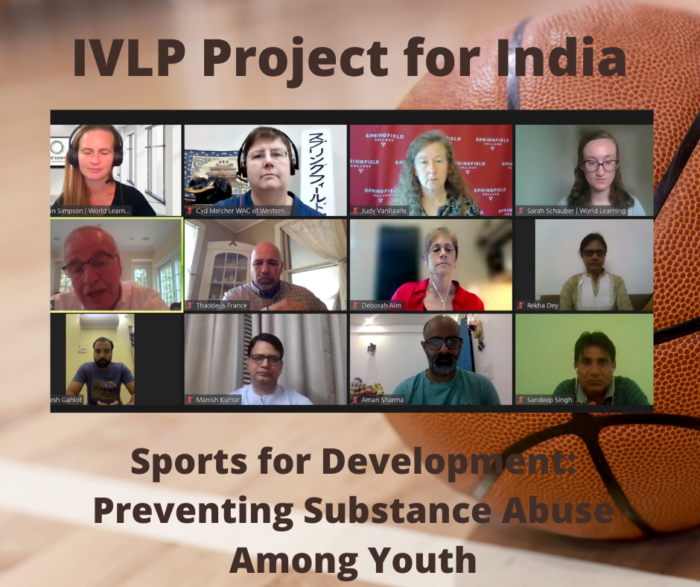By Cynthia Melcher, Executive Director, World Affairs Council of Western Massachusetts
 In May 2021, International Visitor Leadership Program (IVLP) participants from India met virtually with faculty from Springfield College’s Center for Youth Development to discuss supporting mental health and well-being through sport and recreation. This meeting was made possible through a longstanding partnership between the World Affairs Council of Western Massachusetts (the Council) and Springfield College, facilitated by Council Board Member Deborah Alm, Director of the college’s International Center.
In May 2021, International Visitor Leadership Program (IVLP) participants from India met virtually with faculty from Springfield College’s Center for Youth Development to discuss supporting mental health and well-being through sport and recreation. This meeting was made possible through a longstanding partnership between the World Affairs Council of Western Massachusetts (the Council) and Springfield College, facilitated by Council Board Member Deborah Alm, Director of the college’s International Center.
Deborah has been director of the International Center since 1993 and actively involved as a volunteer, home hospitality host and Professional Resource in the Council for years. The Council approached her about joining the board three years ago and Springfield College has been a corporate member and partner of the World Affairs Council for many years.
Deb has been the Council’s main go-between to arrange professional meetings with Springfield faculty and staff for IVLP projects related to college admissions and public private partnerships—the Council’s most recent project with the college.
The Council has many colleges and universities in their area from community colleges and private schools—including the “Seven Sisters colleges” Mount Holyoke and Smith—to the flagship campus of the University of Massachusetts system.

IVLP participants from Egypt pose with a statue of James Naismith, who invented basketball at Springfield College in 1891. Photo provided by Cynthia Melcher.
The IVLP can be a great way to make a connection with institutions of higher learning or to broaden an existing relationship.
- Colleges and universities are great places to cultivate this kind of “multi-pronged” approach though because you can turn to them for event speakers, interns, program space, etc. Springfield College was the site of Council fundraising event in 2019, providing us with event space, parking, and easy access to catering.
- If you’re having difficulty making connections with the right department or individual, try approaching the international office, often responsible for international students and study abroad among other things. In addition to their other duties, international centers are often tasked with “internationalizing” the curriculum and able to convey to other departments why this kind of exchange is not just important because it’s interesting and enriching, but that it progresses the university’s goals to become more global.
- Larger universities especially often have initiatives or centers concerned with a whole array of academic specialties.
- In many ways, colleges and universities are much like other professional resources in that finding someone to guide you to the right person is often incredibly helpful, but also there is a need to cultivate “secondary” relationships with others at the organization to maintain the relationship through staff turnovers.
The May 2021 IVLP project is indicative of the impact of our strong partnership with Springfield College. Participants met with expert faculty and Deb put participants in contact with an Indian alumnus of Springfield who works in the sport for development field and discussed possibilities of the participants coming to Springfield as faculty fellows in the future.

IVLP participants meet virtually with Springfield College faculty. Photo provided by Cynthia Melcher.
Partnering with institutions of higher education on IVLP projects embody the goals and mission of citizen diplomacy in a uniquely comprehensive way. They influence not only the participants and how they do their work in their home countries, but they also have an impact on the faculty and staff of the universities, which in turn can enrich the classroom experience and broaden the horizons of students who then may be thinking more deeply about their place in the world from the start of their adult lives.
